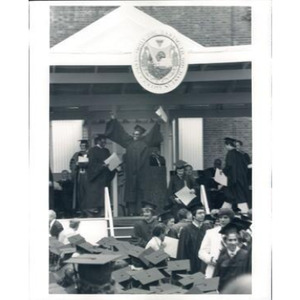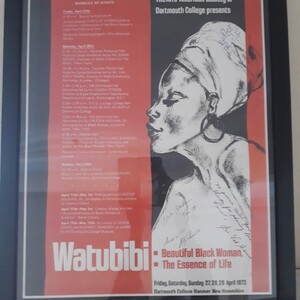To Whom Much is Given
In a 1972 article for the Dartmouth Alumni Magazine, Mary Ross credited the “smooth operation of the opening weeks” from the 1972-73 year in the College’s decision on coeducation. It is thus apparent that Marks’ exchange year was a pivotal one, and the fortitude of women like her helped to assuage fears that the admission of women would negatively affect the Dartmouth experience.
Well, I think my whole life prepared me. I think that it was kind of destiny that the powers that be prepared me. I think that was the whole journey, the transition from an all-white school and dealing with that environment. Then going on to Dartmouth where I was in an environment just like I was going to have in corporate America, surrounded by white men. Because I was at, again, the forefront of women that were going after careers and not the married-mommy track. And that's when companies were starting to open up to women and open up to Black women. So, for most of my career, I've been the first woman, the first Black woman, the first Black person in any job I've ever had.
Vicki Marks
Vicki's belief that ‘to whom much is given, much is expected’ is exhibited in her service to her community at and beyond Dartmouth. She has been actively involved with the National Urban League Business Executive Exchange Program (BEEP) and global charities like CARE
Even while at Dartmouth, Vicki initiated and personally funded a graduation shawl ceremony. She was a principal organiser of the Black Women's conference at Dartmouth in April 1973. For over twenty years, she helped to interview prospective students, particularly students of colour.
Yeah, and I love Dartmouth. [laughter] I had a great experience. So despite the time and place it's important to know that a Black woman came there and thrived from it. It was a benefit, and I hope I've contributed something back to the college in turn. I spent many hours on Dartmouth's behalf. So I think I've earned my keep.
Vicki Marks


